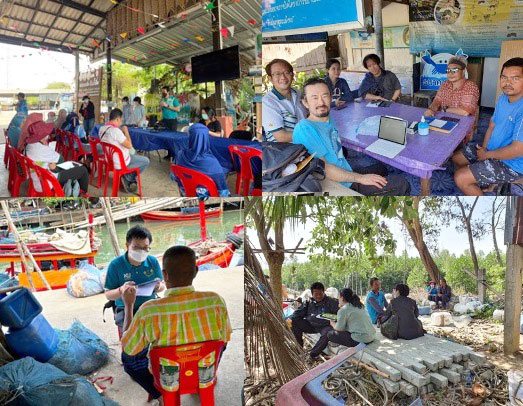Towards sustainable resource management: an international, interdisciplinary approach
Project Gist
Does fishers’ participatory management contribute to poverty alleviation and environmental conservation?
Keywords
sustainable resource management, poverty alleviation, small-scale fishers, Crab Bank, field experiments
Background and Purpose
There is increasing concern about the depletion of fishery resources due to overfishing and development. Particularly in developing countries where formal institutions have not been established, overfishing has led to a decline in catch rates, further impoverished small-scale fishers who depend on marine resources for their livelihoods. In this study, an international research team will be established to explore how fishers’ participatory resource management called “Crab Bank,” introduced in Thailand, contributes to poverty alleviation and environmental conservation by enhancing trust and cooperation among fishers.
Project Achievements
Thanks to support from the SPIRITS, we have successfully expanded our research networks and acquired new research grants. By spending much time together on field trips in Thailand and Japan, we have built great friendships among our team. The field experiments conducted in small-scale fishing communities in Thailand provided the first evidence that participation in Crab Bank activities can promote trust and cooperation among fishers. The result offers hints for future research initiatives.
Future Prospects
I want to clarify how adopting sustainable resource management practices in a fishing community influences shifting local norms on cooperation and explore how these new norms can be spread geographically over a wide area.
Figure


Principal Investigator

MITANI Yohei
Graduate School of Agriculture
His research interests include experimental, behavioral, environmental, development, and forest economics. Prior to coming to Kyoto University, he worked at the UMB School of Economics and Business at the Norwegian University of Life Sciences and at the Institute of Behavioral Science at the University of Colorado, Boulder.
Related URL: https://sites.google.com/site/yoheimitani/
